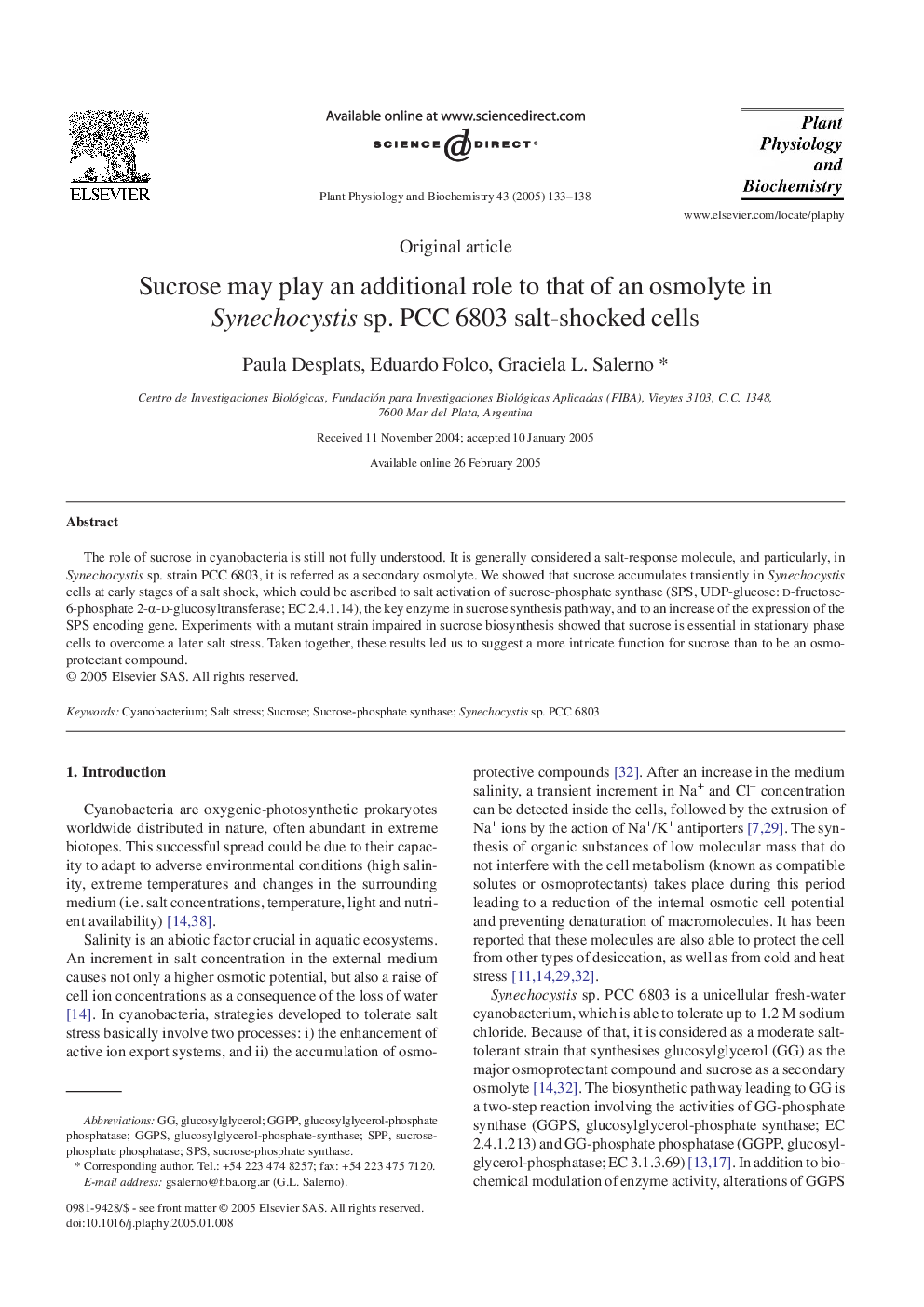| Article ID | Journal | Published Year | Pages | File Type |
|---|---|---|---|---|
| 10840448 | Plant Physiology and Biochemistry | 2005 | 6 Pages |
Abstract
The role of sucrose in cyanobacteria is still not fully understood. It is generally considered a salt-response molecule, and particularly, in Synechocystis sp. strain PCC 6803, it is referred as a secondary osmolyte. We showed that sucrose accumulates transiently in Synechocystis cells at early stages of a salt shock, which could be ascribed to salt activation of sucrose-phosphate synthase (SPS, UDP-glucose: d-fructose-6-phosphate 2-α-d-glucosyltransferase; EC 2.4.1.14), the key enzyme in sucrose synthesis pathway, and to an increase of the expression of the SPS encoding gene. Experiments with a mutant strain impaired in sucrose biosynthesis showed that sucrose is essential in stationary phase cells to overcome a later salt stress. Taken together, these results led us to suggest a more intricate function for sucrose than to be an osmoprotectant compound.
Keywords
Related Topics
Life Sciences
Agricultural and Biological Sciences
Plant Science
Authors
Paula Desplats, Eduardo Folco, Graciela L. Salerno,
